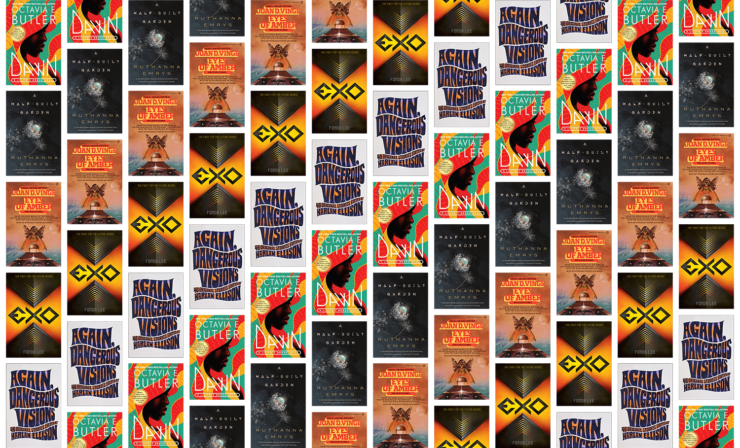Unexpected offers of outside aid are often met with skepticism, and even suspicion, from the would-be beneficiaries. No doubt in many cases it is because the so-called assistance is actually conquest or exploitation. However, it is perfectly possibly for outreach to fail due to fundamental disagreement between the parties: What one group intends as a sincere attempt to help those in need can come across as a paternalistic and offensive attempt to impose alien values.
While very upsetting for the groups involved, unwelcome gifts and uninvited helping hands can be a bountiful source of plot. Here are five stories about such gifts.
“When It Changed” by Joanna Russ (Collected in Again, Dangerous Visions, 1972)
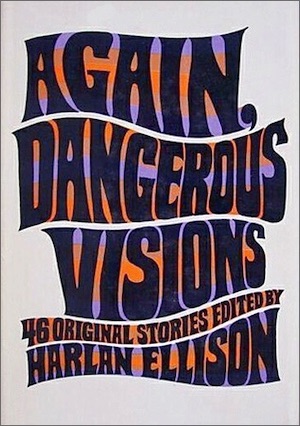
Thirty generations ago disease killed off all of Whileaway’s men. The survivors developed workarounds for the ensuing reproductive challenges, then got on with the business of settling an alien world. Centuries later, they have their homeworld well in hand. Transition from an agrarian society to an urban one is within sight.
Enter an all-male expedition from Earth. The men aren’t the sharpest crayons in the box, but they do have enough imagination to see Whileaway’s demographic peculiarities as a glorious opportunity. Earth can provide Whileaway with the men it no doubt craves and receive in return a much-needed influx of genes. Everyone wins!
As far as Whileaway is concerned, life is fine. What seems wonderful from the Earthmen’s perspective is a catastrophe to the women of Whileaway.
“Eyes of Amber” by Joan D. Vinge (1977)
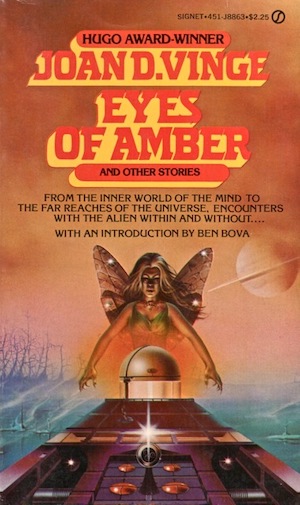
To human eyes, Titan is mix of alien and familiar. The moon is so cold that water is rock-hard, the air is filled with methane, and its winged natives aren’t in the least humanoid. The natives are human in that they have entrenched aristocracies and cut-throat politics.
Lady T’uupieh was deposed by an upstart lord who murdered her family and stole her lands. Her subsequent success as a bandit/cut-throat for hire was due to her pet demon—or, as NASA would put it, the space probe that relays messages between Earth and Lady T’uupieh. The relationship is a win from NASA’s perspective as well: the drama on Titan is potential ratings gold for an agency that struggles to engage the public.
However, Lady T’uupieh’s latest contract—to assassinate the usurper who stole her land—promises to be particularly bloody. Which raises two pressing questions: how moral is it for NASA to profit from selling ringside seats to murder? And if Lady T’uupieh’s demon suddenly began advising a gentler path, would the assassin listen to it or simply reject the advice?
Dawn by Octavia E. Butler (1987)
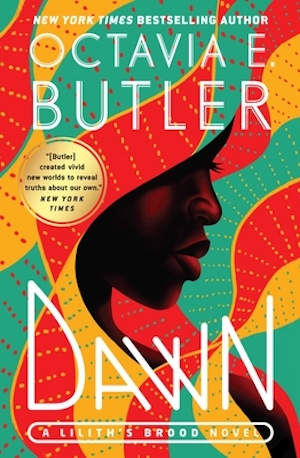
Without the Oankali, humanity would have gone extinct with the rest of poisoned Earth in the aftermath of nuclear war. The aliens arrived in time to save at least some humans. The survivors woke from centuries-long hibernation to find a restored Earth courtesy of Oankali biotechnology. It’s a new world, with a special role reserved for humans.
As Lilith Ayapo soon discovers, that role in no way involves autonomy. The Oankali are convinced that the nuclear war was no fluke. Humans have many laudable characteristics, but left to themselves will soon become extinct. Better to salvage humanity by appropriating our best traits for the Oankali, while ushering humans to a sterile, comfortable, extinction. Saving something is better than saving nothing, right?
Curiously enough, the humans disagree.
Exo by Fonda Lee (2017)
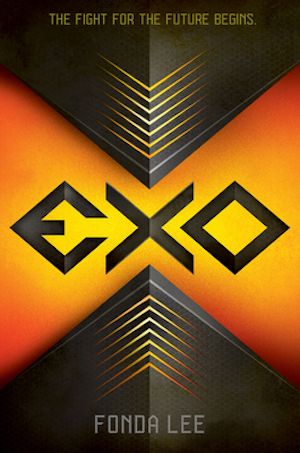
Backward Earth is no match for the rapacious starfaring, planet-mining Rii. Thus, sensible humans accept that second-class status as a colony of the Mur Commonwealth is a reasonable price to pay for protection against the Rii. Indeed, the Commonwealth would assert that it is more than fair, as defending Earth ties down resources that could be better used defending developed worlds.
Of course, a few hotheads disagree, enraged at the violence of the assimilation and the loss of autonomy that followed. Too bad for soldier Donovan Reyes (son of West America’s Prime Liaison Reyes) that rebels see him as an ideal hostage. Also too bad for Donovan that his dad does not negotiate with terrorists.
No, it’s not just that dad is a hardass—if he gives in to rebel demands for human autonomy and the Mur leave, the Rii would swoop in. Continued rebel provocations may convince the Mur to leave anyway. Backward Earth may not be worth protecting…
A Half-Built Garden by Ruthanna Emrys (2022)
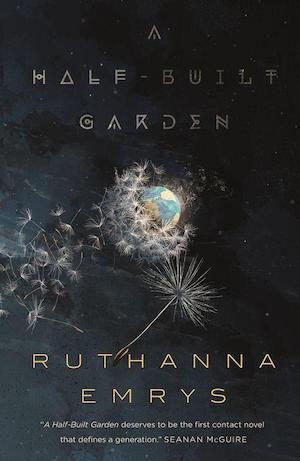
The Dandelion Revolution kneecapped nation-states and corporations alike. The patchwork of watershed polities that rose in the aftermath has spent generations methodically repairing the damage done to the planet, hoping to end the Sixth Extinction before we reach End-Permian extremes. It’s no golden age, but its proponents can point tangible progress in slowing environmental collapse.
The alien Ringers who descend on Earth are overjoyed to have arrived in time. Every previous civilization whose radio signals proclaimed their existence had self-destructed before the Ringers could reach them. This time, the Ringers hope, they will be in time to save a planet-bound civilization from itself.
The Ringers propose a simple solution: move humans and such lifeforms as are necessary to space habitats like those of the Ringer’s home still-forming Dyson Sphere. The watersheds demur, unwilling to write-off the Dandelion Revolution and the decades of hard work that followed. Whether this is inspirational determination or another example of the sunk cost-fallacy is a side issue: the Ringers, vastly more powerful than Earth, are not offering a choice.
***
Gifts offered in good faith that are nevertheless anathema to the recipient are wonderful plot-engines. Consequently, there are many examples I could have mentioned but didn’t. No doubt many of you have your favourites that I did not cite. Comments are, as ever, below.
In the words of fanfiction author Musty181, prolific book reviewer and perennial Darwin Award nominee James Davis Nicoll “looks like a default mii with glasses.” His work has appeared in Publishers Weekly and Romantic Times as well as on his own websites, James Nicoll Reviews (where he is assisted by editor Karen Lofstrom and web person Adrienne L. Travis) and the 2021 and 2022 Aurora Award finalist Young People Read Old SFF (where he is assisted by web person Adrienne L. Travis). He is a four-time finalist for the Best Fan Writer Hugo Award, and is surprisingly flammable.










